FROM THE EDITOR: Martin Luther King Jr. Memorial Offers Hope
"Find strength from those who surround you."
By Martin Davis and Suzanne Carr Rossi
EDITOR-IN-CHIEF/PHOTOGRAPHER
Email Martin
Hope was seemingly lost on April 4, 1968, when an assassin’s bullet felled Martin Luther King Jr. in Memphis, Tennessee. Yet hope has survived.
On Friday evening at Shiloh Old Site in Fredericksburg, roughly 130 people filled the upstairs sanctuary; walked across dark-red carpet; sat in deep, oak-stained pews; and gave testimony to the power of hope. They had gathered in reverence to recall the past, and to recognize those who are building hope for the next generation.
And they came to remember.
Their reverence gave way to silence as the clock ticked toward 6:01 p.m., the time that King was killed. The Rev. Joe Hensley of St. George’s Episcopal Church came to the pulpit five minutes before that time, and called those in attendance to prayer.
To be silent for five minutes is a stretch for most people in the West. We do not do well with quiet, perhaps because it’s in those moments that we most surely confront ourselves.
At this moment, however, the silence was not straining for disruption, but rather nesting those who gathered.
The moment was accentuated by the church’s pastel stained-glass windows of yellow and green, which softened the bold colors of furnishings and carpet. They also lifted the silence of those in the building, as if to lift the burdens and darkness we can enter when we are alone with our thoughts, to a place above, where we can see and learn from them, and also be empowered by acknowledging them.
Vicky Butler, a childhood friend and neighbor of the King family, helped those in attendance to examine their fears and frustrations by guiding them toward a path of hope.
“Remember the loss of Dr. Martin Luther King on that dark day, 57 years ago,” she began, “I want to share my experiences and my approach of getting through this dark and challenging period in our country, then and now, using love, faith, fight, and hope.”
Growing up in the Jim Crow South, Butler explained where she found love — in her family, her church, and her school. These constituted her “safety net” and guided her through a period that was not just difficult, but could also be dangerous for Black Americans.
The cornerstone of her nurturing during these years was being taught to both serve and care for those less fortunate thank themselves.
A 1963 sermon by King captured for Butler the importance of balancing the struggle to overcome oppression with the need for compassion.
“With every ounce of our energy,” King said in his sermon “Loving Your Enemies,” we must continue to rid this nation of the incubus of segregation…. But we shall not in the process relinquish our privilege and our obligation to love. This is the only way to create the global beloved community.”
Butler demonstrated the difficulty of living this tension in retelling a moment when, as a child, she stood in line with her father at the bank. Her father’s turn was next, but the teller motioned the white customers behind them to the front.
She protested the inequality to her father, who shushed her, and said simply: “Our time will come.” She could not fathom at the time that his actions were an act of survival; she could fathom the dignity her father was demonstrating.
Butler attended middle school in Atlanta with Yolanda King, the oldest daughter of her famous father. She went by the nickname, Yoki.
Butler was with Yoki and her family in the days after the assassination, and she recalled that “I remember being amazed at how they were coping, and how they appeared so calm. I especially remember Yoki saying to us how they knew this day would come, they just didn’t know when.”
Through it all, Butler said, the family knew that hope prevailed, because they had repeatedly seen it in their lives.
Shifting to today, Butler noted: “This country has always been divided. We’ve been here before. My hope comes from knowing the fighting of my ancestors, as well as my parents, my older siblings, who faced harsher and more difficult battles. Yet they never gave up. There is no other choice but hope for me.”
And though she tires of the struggle, she remains hopeful and empowered by taking actions locally that create a better space for everyone.
“I resist” the wrongdoing, she said, “by participating in my church’s LGBTQ+ ministries, and volunteer at Camp Rainbow, donate food to our pantry that feeds the hungry, and boycott businesses that do not support the disenfranchised. And I call out to God for help and hope everyday.”
Drum Majors
Butler was not alone in demonstrating hope in times of darkness.
The event also recognized two individuals with the Drum Major for Justice Awards. The first was Florence Ridderhof, a graduate of what is now the University of Mary Washington and the founder of Empowerhouse, which offers emergency shelter and support for survivors of domestic violence. She’s also been engaged in relief work around the world, and is closely tied to the work of Micah Ministries.
Dr. Paula Royster is a two-time Fulbright Scholarship winner and founder of The Center for African American Genealogical Research, Inc. She specializes in researching the African diaspora, and she has done work on every continent but Australia. Her work has included conducting DNA analyses of the 10 oldest families in Fredericksburg to discover their ancestral roots, and investigating the rich history of free Blacks in Fredericksburg prior to the Civil War.
Strength in Those Around You
The days since the Martin Luther King Memorial service at Shiloh Old Site have been trying ones for our region. A gun discharge in an elementary school on Monday was a reminder of the harm that comes when parents aren’t the models for their children that Butler’s parents were for her.
And the violence that erupted on Tuesday evening that has destroyed the lives of seven people — three who died, and four now in prison — all under the age of 20, two aged 16 — was a reminder that our communities need to lean into one another.
The polarization and hatred that feels overpowering wins only when people turn from communities, and turn into themselves, or their individual groups of like-minded people, be that political parties or of social media.
Rather than finding those who reinforce our thinking, Butler showed a better way Friday night. “I charge you now to find strength from those who surround you, who have demonstrated to you how to hold on and not give up.”
In them, hope survives.
Local Obituaries
To view local obituaries or to send a note to family and loved ones, please visit the link that follows.
Support Award-winning, Locally Focused Journalism
The FXBG Advance cuts through the talking points to deliver both incisive and informative news about the issues, people, and organizations that daily affect your life. And we do it in a multi-partisan format that has no equal in this region. Over the past year, our reporting was:
First to break the story of Stafford Board of Supervisors dismissing a citizen library board member for “misconduct,” without informing the citizen or explaining what the person allegedly did wrong.
First to explain falling water levels in the Rappahannock Canal.
First to detail controversial traffic numbers submitted by Stafford staff on the Buc-ee’s project
Our media group also offers the most-extensive election coverage in the region and regular columnists like:
And our newsroom is led by the most-experienced and most-awarded journalists in the region — Adele Uphaus (Managing Editor and multiple VPA award-winner) and Martin Davis (Editor-in-Chief, 2022 Opinion Writer of the Year in Virginia and more than 25 years reporting from around the country and the world).
For just $8 a month, you can help support top-flight journalism that puts people over policies.
Your contributions 100% support our journalists.
Help us as we continue to grow!
This article is published under Creative Commons license CC BY-NC-ND. It can be distributed for noncommercial purposes and must include the following: “Published with permission by FXBG Advance.”




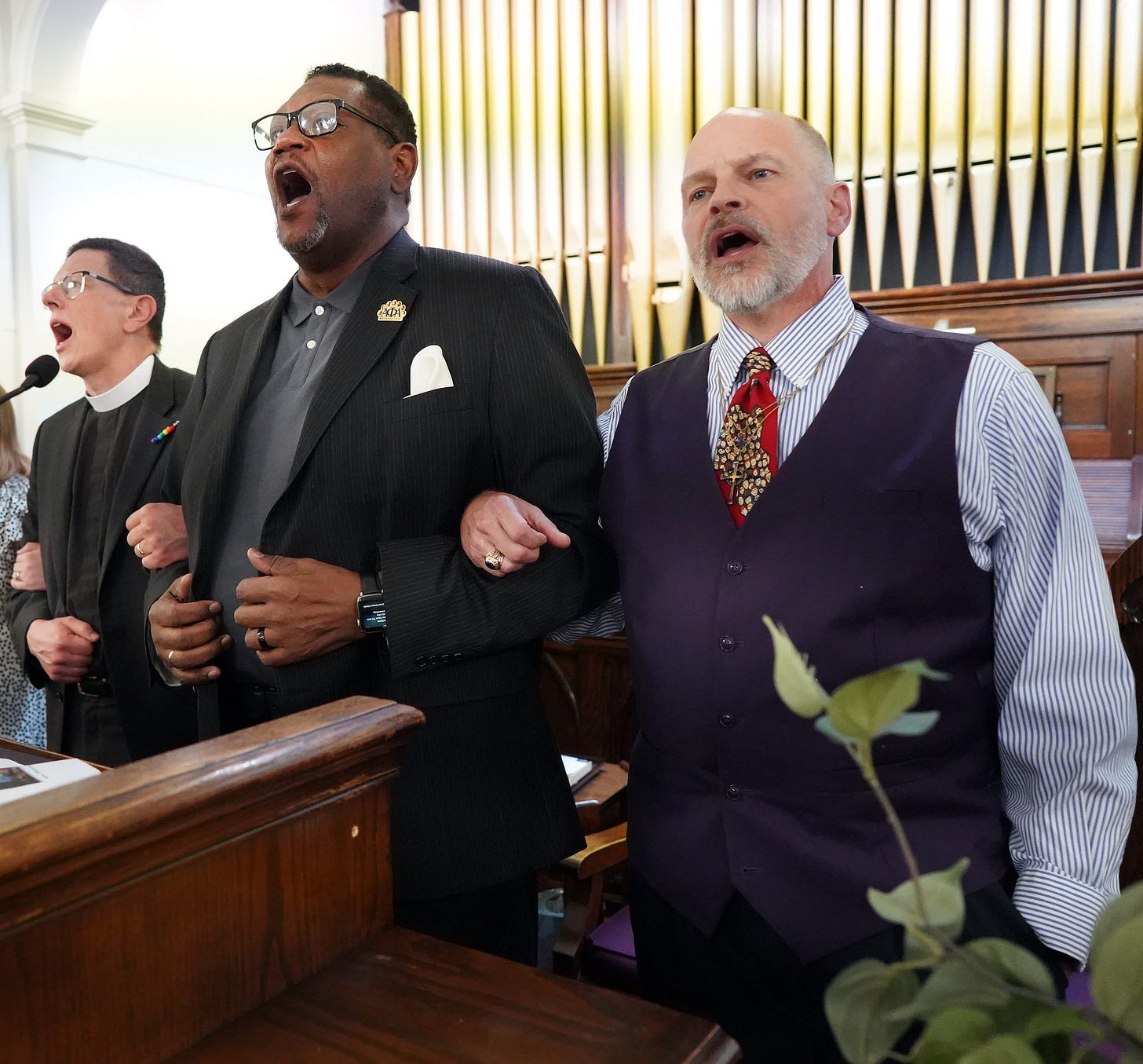

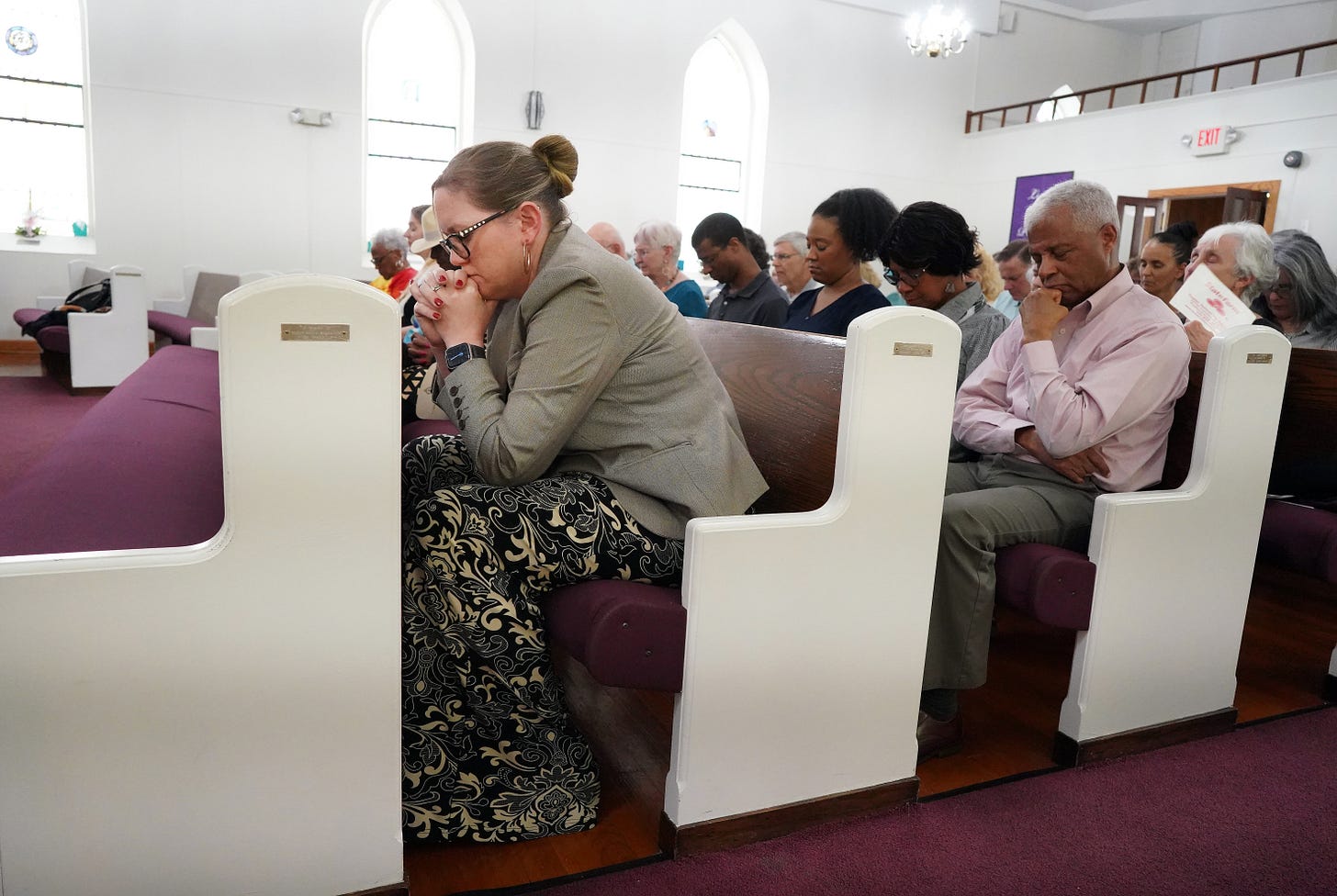
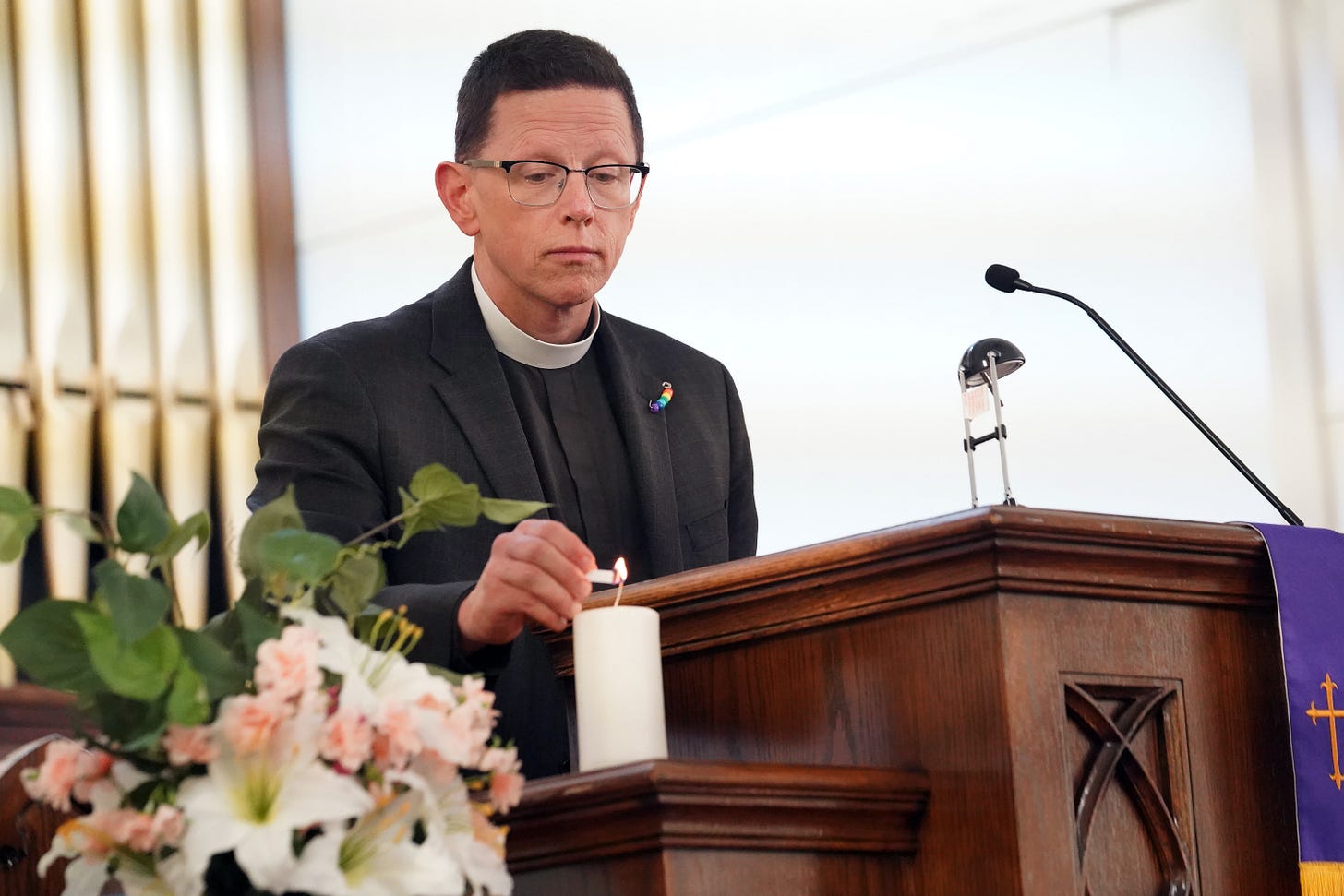

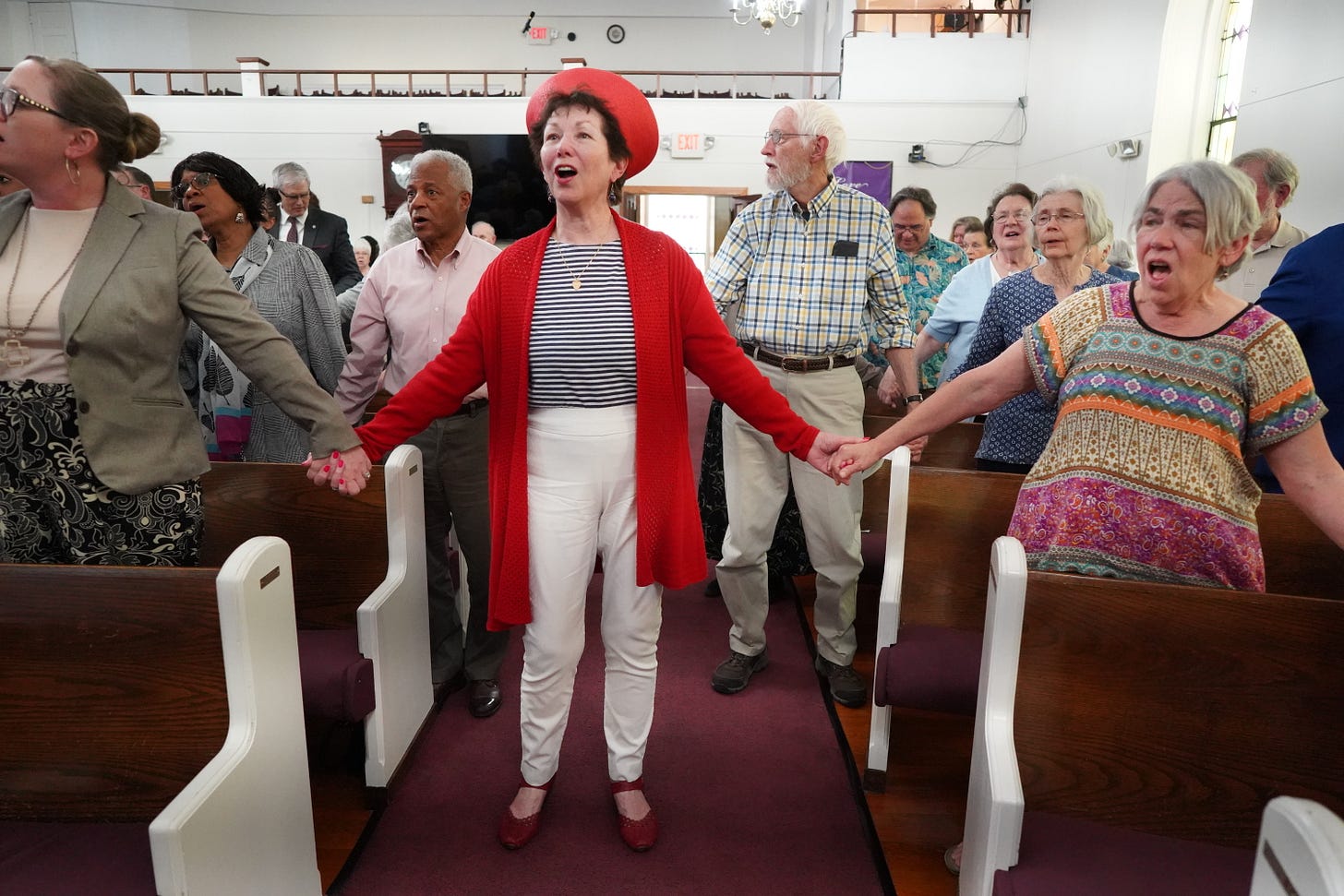
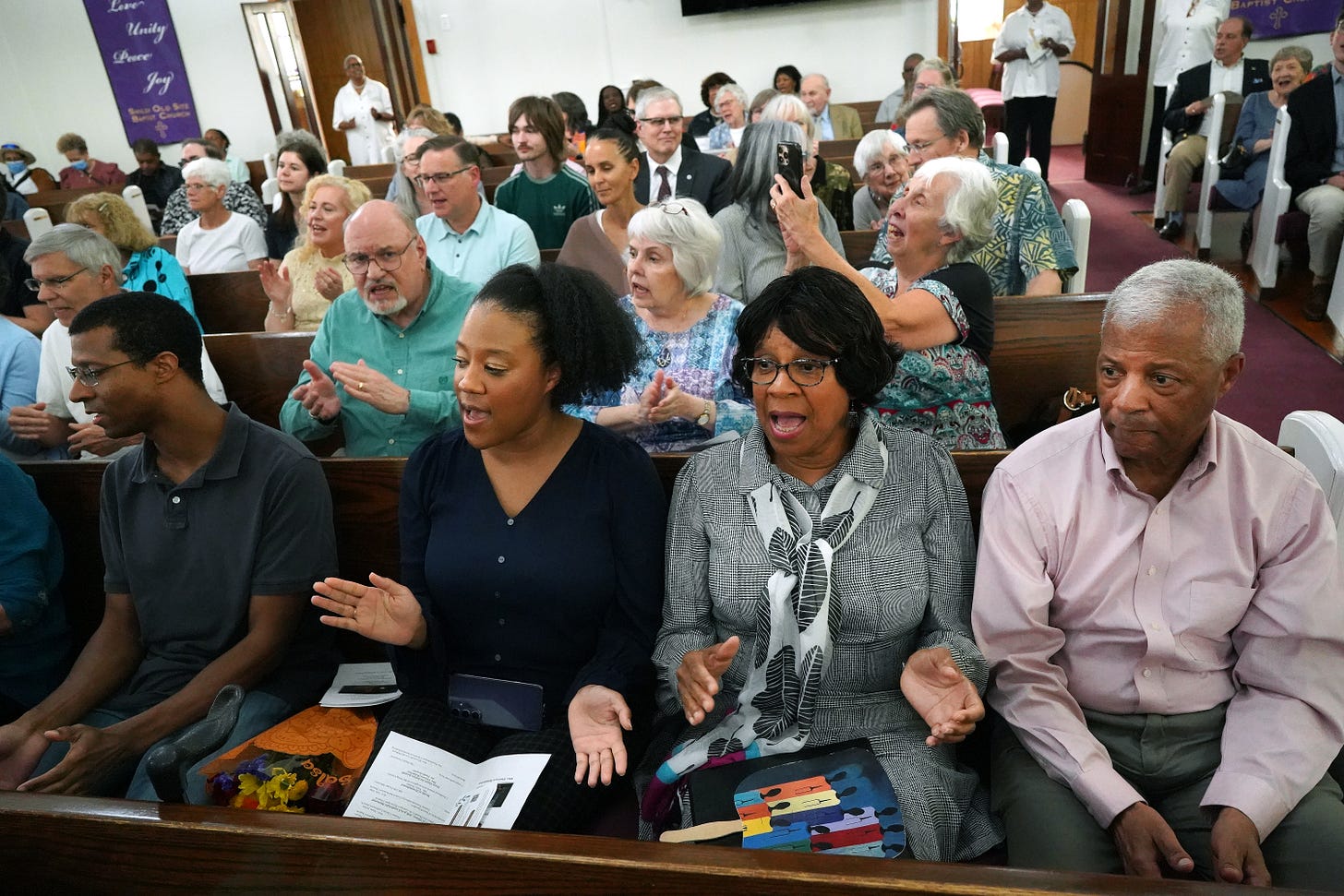
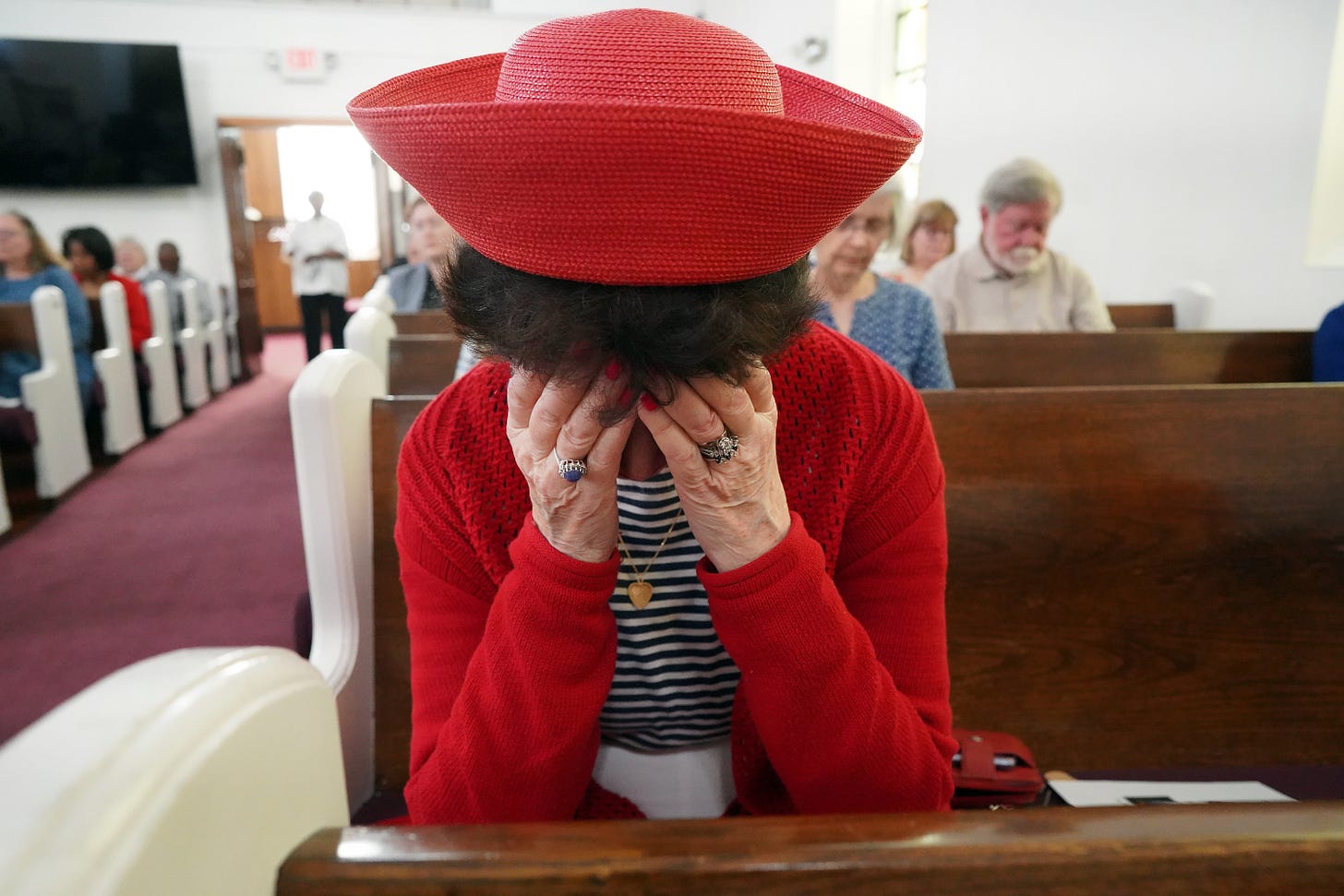
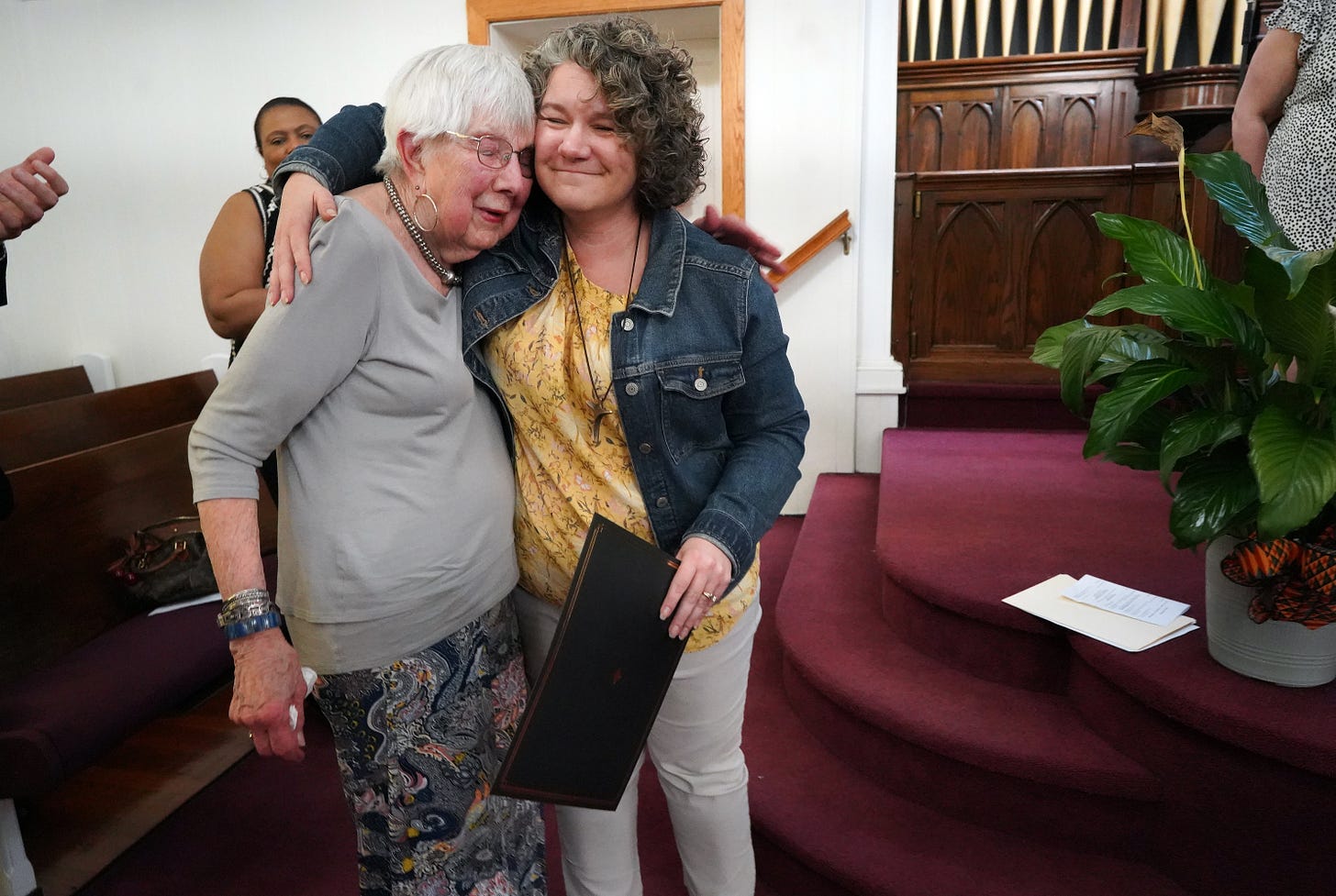












The power of hope and the communal voice of love and peace resounded that night and continues to ring out, if we look for it. If we seek to live into it. If we carry with us the light of Dr. King's and Vicky Butler's message. Thank you for a powerful article that truly caught the fullness of the gathering.